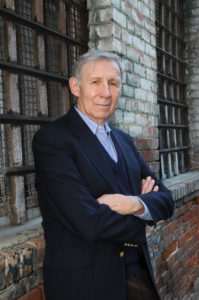Introduction
Deborah Levine requested that I join her group on Black and Jewish Dialogue in 2021. Given today’s atmosphere, dialogue is crucial. Levine is the editor-in-chief of the American Diversity Report (ADR). She is a Holocaust documentarian (Courter, 2023; Levine, Untold Stories of a World War II Liberator, 2023), whom I am sure when she launched ADR never anticipated that diversity and DEI would be equated with anti-Semitism. Yet the cry has been aimed at academia and business (Cohen, 2023; Notheis, 2024) I am baffled by the cry to silence and dismantle DEI.
Through my DEI journey and practice since 1991 in corporate America, DEI has been inclusive and provides respect and dignity to all across religion, race, ethnicity, national origin, sexual orientation, gender, physical and mental ability, and other demographics. I will provide some examples later in the article.
Continue reading DEI, Religion, and Hate Crimes – by Deborah Ashton, Ph.D.


